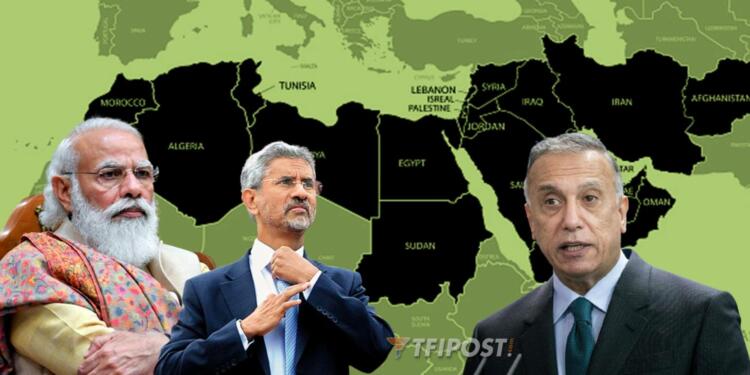It is literally as well as metaphorically true that oil fuels modern economies. This is part of the reason why oil fuels warfare as well. A civil version of that is being observed in Arabs’ attitude towards India. India’s emphasis on procuring Russian oil has forced them to engage in a pricing war with Russians. They are literally now on their knees for selling oil to India.
Iraq is not in line with OPEC
According to a report by Business Standard, Iraq is not following OPEC’s consensus on oil supply. OPEC is busy increasing the oil price to new heights, while Iraq is quoting a lower price to India. The geography otherwise known for Saddam Hussain is doing it in a bid to maintain its numero uno status of oil supplier to India.
In June this year, India had to chalk out an average of $116 per barrel to avail oil. The lower end of this price was dominated by Russia and Iraq. Russian Ural was available to India at a highly discounted price of $102 per barrel. At that time, conflicting data points had indicated that Russia had either replaced Saudi Arabia or was about to replace it as number 2 oil supplier to India. Naturally, Iraq was fearful of losing the huge Indian market. To save itself, it resorted to offer its oil to India at $9 lower than the Russian price.
At the price of $93 per barrel, Iraq supplied India 1.39 million barrels of oil per day. It was a significant increase of 26 per cent over its supply in May. On the other hand, Russians supplied 9,86,000 barrels of oil per day to India. A remarkable aspect of Russian oil to India is that its shopping cart is now open to those oil variants which were earlier not being transported to India.
Competition has diversified options for India
Earlier, Russians only supplied Urals to India. However, as they are shutting down their gates for the European market, other blends like Eastern Siberia–Pacific Ocean (ESPO) blend and Caspian Pipeline Consortium (CPC) blend are also making their way into India. ESPO blend is in fact the flagship crude of the Russian state.
Why would Iraq be left behind? It also widened its basket for Indian markets. Earlier, Iraq mainly supplied Basrah light to Indian refineries. The problem with Basrah light is that it is costlier and that is why Russian cheap oil posed a threat to Iraq. To lower the average cost, Iraq also started to pour in Basrah heavy and Basrah medium blends on Indian ships.
India-Russia closeness is a threat to Arab World
Ideally, Iraq and other Arab nations should not have been worried about Russian supply as initially it was perceived as a stop-gap arrangement. Experts assumed that until Ukraine-related sanctions are on, Russia will supply oil to India and when things get back to normal, India will again have to depend on the Arab world. This partially explains why the Middle East found it convenient to interfere in India’s internal affairs.
However, things didn’t turn out for them as anticipated. Building on oil supplies, India and Russia started to take their relationship to a whole new level. Russians are opening their markets for Indian companies. An alternate Rupee-Rouble arrangement has been made for bilateral trade. Both countries are focusing on increasing bilateral trade to $ 30 billion by 2025.
The Arab world needs India more
For this purpose, the geographical barriers are being eliminated. The INSTC corridor has started its operations while our initiatives in Russia’s Far East have started to pay off. The Russian Far East has huge potential of oil reserves and explorations worth billions of Dollars are going on.
Foreseeing the future of India-Russia ties, the Arab world is scared. Why wouldn’t they be? India’s dependency on the Arab world is only with respect to oil and gas while the Arab world is dependent on us for their meals. India has Russia as an alternative, but they do not have India’s replacement.
Support TFI:
Support us to strengthen the ‘Right’ ideology of cultural nationalism by purchasing the best quality garments from TFI-STORE.COM
























